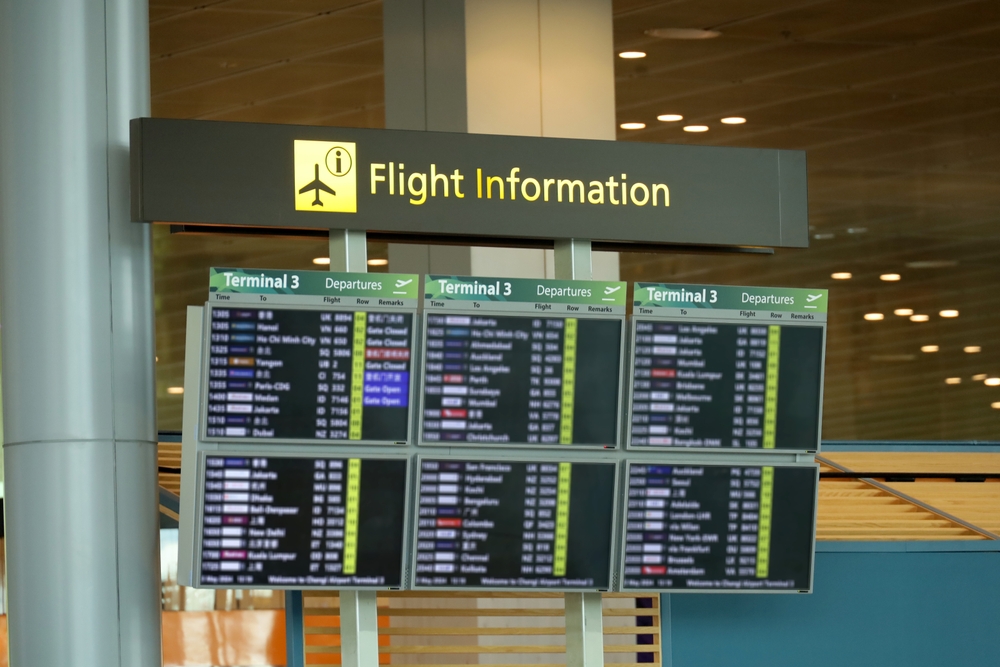Stop treating every trip like a shopping spree disguised as an adventure.

You don’t need to sacrifice comfort or fun to travel more responsibly—it’s just about being more aware and intentional. Many travelers still haul around way too much stuff, burn through plastic like it’s nothing, and treat foreign destinations like personal playgrounds. But small changes in how you pack, move, and spend can make a massive difference, not just for the planet but for your overall travel experience.
Eco-friendly travel isn’t about guilt or perfection. It’s about doing what you can, when you can, without losing the joy of the journey. The truth is, traveling lighter—physically and environmentally—often makes your trip smoother, more authentic, and even cheaper. These 11 small but mighty moves can help you see the world without wrecking it.
1. Skip the giant suitcase and travel with a carry-on.

Dragging a heavy suitcase through airports and cobblestone streets doesn’t just stress your back—it also ups your carbon footprint. Planes burn more fuel the heavier the load, and yes, that includes your overpacked bag. Choosing a carry-on forces you to be smarter about what you bring and helps you move more freely, especially on public transport or on foot, as mentioned by Jasmine Grant at Travel + Leisure.
You’d be surprised how little you actually need. Stick to versatile layers, pack multipurpose items, and leave the “just in case” extras behind. Lighter packing also means less time worrying about lost luggage and more time exploring. And if you’re moving between cities, you’ll appreciate the freedom of hopping buses or trains without being bogged down. One small bag, less stress, better travel karma.
2. Choose direct flights whenever possible.

It’s easy to get tempted by cheaper flights with multiple layovers, but those extra takeoffs and landings add up fast in emissions. Flying is already one of the biggest contributors to your travel carbon footprint, so going direct when you can makes a meaningful dent. It also reduces the odds of missed connections and lost baggage.
If a nonstop flight isn’t in the cards, try to pick routes with the fewest legs and shortest distances. Some airlines even let you purchase carbon offsets during checkout—worth considering if air travel is unavoidable, as reported by Brian Palmer of NRDC. Think of it this way: fewer flights mean less stress, less waiting, and less environmental damage. It’s a triple win.
3. Book locally-owned hotels and guesthouses.

Those big chain hotels might feel familiar, but they rarely support the local economy the way small, independent stays do. When you book with local owners, more of your money stays in the community. That means supporting local jobs, family businesses, and regional culture rather than just padding corporate profits.
Smaller guesthouses also tend to be more mindful about their resources, according to Paige Bennett at World Economic Forum. Many have water-saving policies, composting systems, or solar panels. Plus, you’re more likely to get insider tips on where to eat, what to see, and how to avoid the crowds. Your trip becomes more meaningful, and you make a smaller impact while you’re at it.
4. Carry a reusable water bottle with a built-in filter.

Buying plastic bottles every day might seem harmless, but it adds up fast—especially in countries without robust recycling systems. A sturdy reusable bottle with a built-in filter lets you stay hydrated safely without creating a mountain of waste. It also saves you a surprising amount of money over time.
Many modern filter bottles are lightweight and effective enough to handle questionable tap water in most parts of the world. Some even handle viruses. And if you’re hiking, camping, or moving through remote villages, having your own filtration gives you peace of mind and flexibility. It’s one of those items that earns its space in your pack ten times over.
5. Eat local and seasonal food instead of imported favorites.

Imported food comes with a steep carbon price tag due to all the transportation involved. By choosing local and seasonal ingredients, you’re reducing that footprint while experiencing the country in a far richer way. Street food stands, small markets, and local eateries offer the most authentic—and usually tastiest—options.
Eating what’s in season also supports local farmers and avoids the energy cost of refrigeration or hothouse production. You’ll probably discover flavors you’d never get back home, and your money helps sustain traditional foodways rather than multinational supply chains. Think of each bite as a tiny vote for sustainability.
6. Use public transport or walk instead of hailing rides.

Cars, taxis, and rideshares might be fast, but they’re rarely eco-friendly—especially when used solo. Trains, buses, and subways are not only better for the environment, but they also immerse you in the everyday life of a place. You get to see how locals live, interact, and move through their world.
Walking when you can is even better. It slows you down, lets you stumble across hidden gems, and keeps you grounded in your surroundings. Bonus: it’s free, and it’s good for your health. Taking the road less carbon-filled might just lead to your favorite memory of the trip.
7. Say no to daily hotel cleanings and towel changes.

It might feel luxurious to have your sheets and towels changed every day, but the environmental cost is high. All that laundry eats up water and energy, especially in places where resources are already stretched thin. Most hotels let you opt out—so just hang up your towel and keep using it.
You wouldn’t change your sheets at home every day, right? The same logic applies while traveling. By skipping unnecessary cleanings, you conserve valuable resources and reduce the hotel’s workload. It’s a small, quiet choice that adds up quickly, especially in busy tourist areas.
8. Bring your own toiletries and avoid single-use hotel items.

Those little plastic bottles of shampoo and lotion? Most of them get tossed half-full and never recycled. Bringing your own refillable containers reduces waste and ensures you’re using products that work well for you. A solid shampoo bar, for example, can last weeks and eliminate the need for multiple containers.
It also sends a subtle signal to hotels: travelers are paying attention and care about sustainability. Skip the freebies, and pack what you need. You’ll save space, reduce waste, and keep your travel routine more consistent. Sometimes the greenest move is just to come prepared.
9. Avoid animal-based tourist attractions.

Riding elephants, swimming with captive dolphins, or posing with drugged tigers might seem like bucket list moments, but they’re often cruel behind the scenes. Even when it looks harmless, many animal attractions involve mistreatment, captivity, and serious ethical concerns. Choosing not to support these places is one of the most powerful eco-conscious decisions you can make.
Instead, look for ethical wildlife experiences run by conservationists. Nature reserves, guided hikes, or sanctuary visits that focus on rehabilitation offer safer, more respectful alternatives. You’ll leave with stories that feel good—not ones that quietly nag at you later. Being a responsible traveler means leaving animals wild and free, just like nature intended.
10. Pack reef-safe sunscreen and biodegradable toiletries.

Regular sunscreens and soaps often contain chemicals that harm marine life, especially coral reefs. If you’re heading to the beach or plan to swim in lakes and rivers, using eco-safe products protects the local ecosystem while still keeping you clean and protected.
Look for “reef-safe” on sunscreen labels and opt for biodegradable soaps and toothpaste. These small swaps matter more than most people realize—especially in delicate environments already stressed by tourism. You’re not just washing yourself; you’re deciding what gets washed down the drain into local water systems.
11. Offset your carbon footprint at the end of your trip.

Even the most mindful traveler will leave a footprint. That’s just the reality of moving around the world. Carbon offsets aren’t perfect, but they offer a way to balance the scales a bit. Supporting reforestation, renewable energy, or conservation projects can help counteract the emissions you couldn’t avoid.
Some platforms make it easy—just plug in your miles flown and donate accordingly. It’s not a fix-all, but it shows that you care and are willing to take responsibility. If enough people do it, the impact becomes meaningful. Think of it as the final step in a journey you tried to tread lightly.
